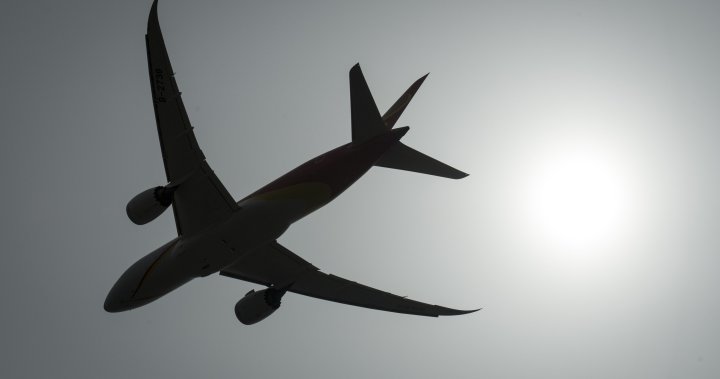The number of air passenger complaints to Canada’s transport regulator has more than tripled over the past year, soaring past 42,000 as of this month.
The ballooning backlog means each case now needs more than a year and a half to handle, spurring advocates and politicians to question the efficacy of the process, even as hiring and funding ramp up.
The complaint tally shot up after travel chaos erupted over the summer and again during the winter holidays as flight demand surged and poor weather conditions disrupted flight schedules.
Complaints totalled about 13,400 as of March 31, 2022, before skyrocketing to unprecedented highs in the ensuing 12 months, according to Canadian Transportation Agency reports. They hit 36,000 in late January, and rose by another 17 per cent since then.
The growing number of grievances comes despite an $11-million funding top-up for the regulator in the federal budget last April, and $76 million more announced last week, with the aim of boosting staff numbers and expediting complaints processing.
The chair of the Canadian Transportation Agency says processing complaints remains its main focus and enforcement comes second. But critics say the backlog owes to major gaps in the air passenger rights charter and inaction on the part of the regulator.
NDP transport critic Taylor Bachrach is poised to table a private member’s bill Monday afternoon that seeks to close loopholes, increase fines and make compensation automatic for travellers whose flights are delayed or cancelled.
The Air Passenger Protection Regulations, which took effect in 2019, allow airlines to reject compensation claims by citing safety-related reasons. The proposed legislation would end that exception.
Meanwhile, a dearth of fines speaks to the agency’s disregard for enforcement, advocates claim. The total issued against airlines and airports reached $645,630 over the past 12 months, up from $253,975 in 2021-22 and $54,500 in 2020-21. However, the most recent figure amounts to a fraction of annual airline sales _ less than 0.04 per cent of Air Canada’s $16.56-billion revenue last year, for example.
Bachrach is calling for higher penalties and more rigorous enforcement.
“The fines in the legislation as it currently stands are insufficient to act as a deterrent. As long as the cost of following the rules is higher than the cost of breaking them, we’re going to see airlines operate outside the rules as a course of normal business,” he said in a phone interview from Prince Rupert, B.C.
Agency chair France Pegeot told the transport committee in January that clearer, stronger rules would lead to better enforcement.
But she qualified that the agency’s role as a quasi-judicial tribunal handling complaints is priority No. 1, while its mandate to penalize violations comes second.
“The first thing we do is that we really focus, first of all, on complaints, because this is what puts money in the pockets of consumers,” Pegeot told the committee on Jan. 12.
The agency had only six enforcement officers at the time, she noted.
It has also never fined an airline for violations around passenger compensation, she said.
Both Bachrach and John Lawford, who heads the Public Interest Advocacy Centre, say the passenger rights overhaul promised by the federal government for this spring also needs to make compensation automatic in the event of significant delays or short-notice cancellations.
“You need a very dedicated regulator with a clear set of rules that enforces a lot, and a regime that’s easy for consumers to navigate – almost automatic,” Lawford said in a phone interview.
Last week, Transport Minister Omar Alghabra pledged $75.9 million over three years to chip away at the backlog by hiring 200 more employees. He also vowed to end the loophole that allows airlines to dismiss compensation requests on safety grounds such as unscheduled maintenance or even crew shortages.
Tom Oommen, the agency’s director general of analysis and outreach, told The Canadian Press in August it was trying to hire more facilitators who can help resolve customer complaints, but that worker retention remained a problem.
“The CTA has already been reviewing its current complaint resolution process to identify and make process improvements to ensure it makes the best use of the resources provided to it by the government,” the agency said in an email last week.
“For example, we have already been able to streamline the intake of complaints and reduce incomplete and inaccurate applications from 50 per cent of all applications received to 10 per cent, which results in less administrative back and forth, and shorter wait times for complainants.”
© 2023 The Canadian Press




